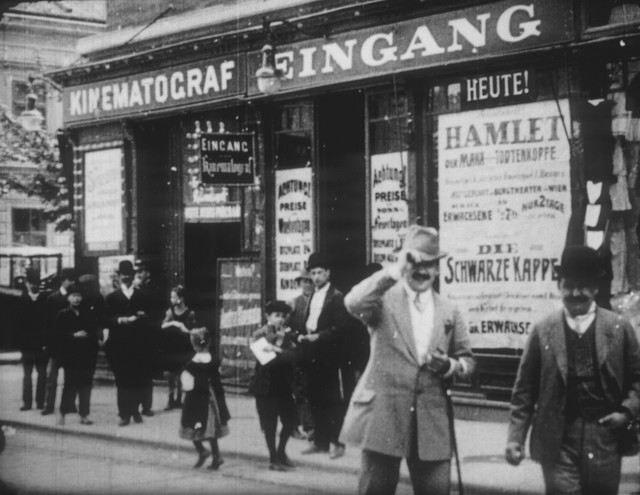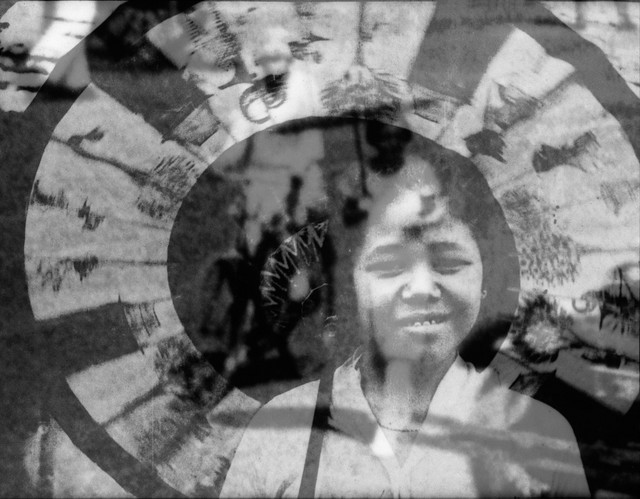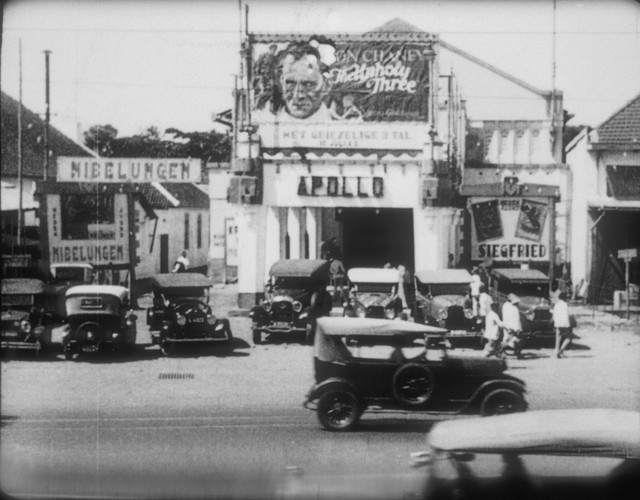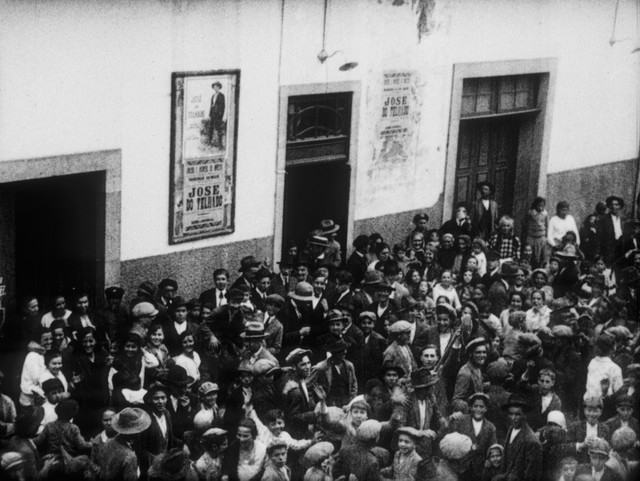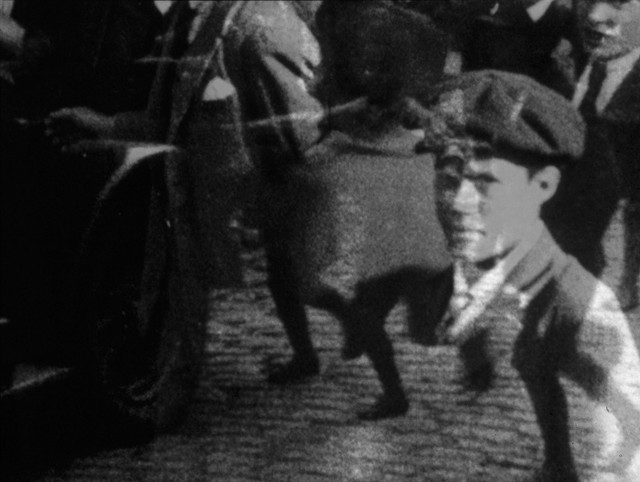World Mirror Cinema, Episode 1 – 3
WORLD MIRROR CINEMA, the title of the film in episodes, already suggests its content: the mutual reflection of the reality of the world and the world of the cinema.
Documentary found footage from the early days of cinematography offer a starting point, in which the cinema is the object of self-reflection: film recordings showing cinemas in their urban environments—including life on the streets, passersby, curious onlookers, and their reactions to the camera. The second starting point comprises the films included in these cinemas’ programs, and the titles of these films, which we see on the cinemas’ film posters.
WELT SPIEGEL KINO allows the reality of the street in front of the cinemas and the world of the cinema to enter into a cinematic dialogue. Individual characters, who are representative of an idealized social position, are pulled from the flow of those passing by. These characters are shown in fictive portraits compiled from archive material originating from the same places and times. These portraits provide a counterpart for individual protagonists from the films—which are playing at the respective cinemas—in the form of a film quotation.
WELT SPIEGEL KINO shows a picture of the world as it is handed down to us in moving images; contradictory, suspenseful, trusting in the power of the images, without commentary.
The selected places, characters, and films are not related to each other. There is no direct link between the individual episodes in terms of location, content, or time. They are (cinema)(his)stories as we have found them in the film archives: erratic, accidental, and surprising.
WELT SPIEGEL KINO, a film in episodes, will be continued as a work in progress, whereby the future episodes can be combined in a variety of ways with past episodes to put together individual programs. The first three episodes are based on films from Vienna, Austria 1912; Surabaya, Java, 1929; and Porto, Portugal, 1930.
Senses of Cinema, World Poll 2005
Tom Gunning, "Living Mirrors: Deutsch´s Cinematic Monadology, in Welt Spiegel Kino - Episode 1-3, film booklet
Michael Loebenstein, "The Hub of the Universe", in Welt Spiegel Kino - Episode 1-3, film booklet
Nico de Klerk, "Enter the Dragon", in: Welt Spiegel Kino - Episode 1-3, film booklet
Regina Guimaraes, "Film as a Mirror of the World", in: Welt Spiegel Kino - Episode 1-3, film booklet
Concept, Script, Editing
Gustav Deutsch
Artistic Supervision
Hanna Schimek
Research
Gustav Deutsch
Hanna Schimek
Music / Sounds
Christian Fennesz
Burkhard Stangl
Cello played by Jean Paul Dessy
Production
loop media
Nederlands Filmmuseum
Producers
Manfred Neuwirth
Frank Roumen
Support
Filmfonds Wien
Bundeskanzleramt Sektion für Kunstangelegenheiten
ORF (Film/Fernsehabkommen)
Niederösterreich Kultur
Het Nederlands Fonds voor de Film
Cooperation partners
Cinemateca Portuguesa
Det Danske Filminstitut
Filmarchiv Austria
Nederlands Filmmuseum
Österreichisches Filmmuseum
Distribution / Sales
sixpackfilm
Nederlands Filmmuseum


